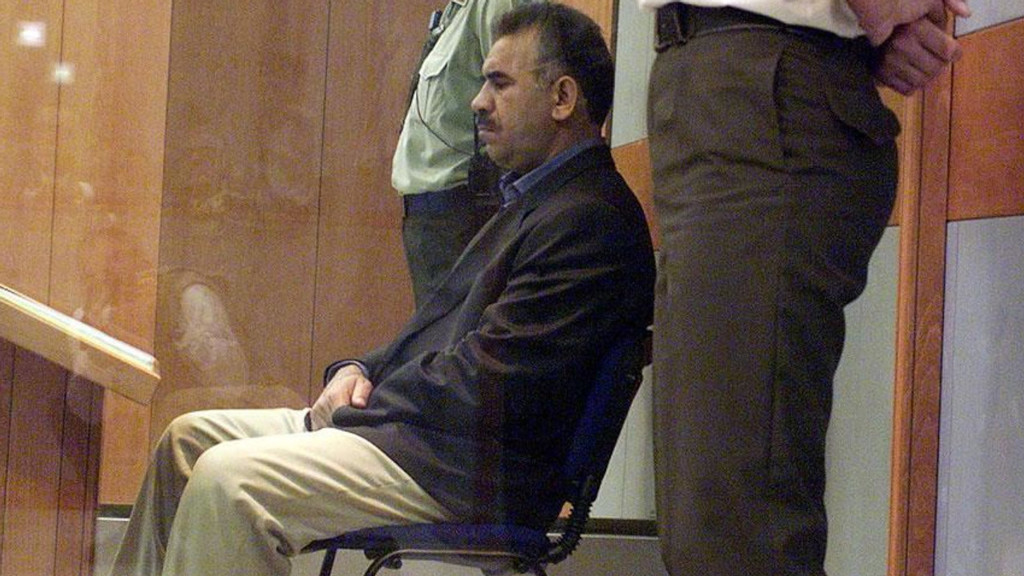Jailed Kurdish politician Selahattin Demirtaş has said Turkish President Recep Tayyip Erdoğan had “luxurious quarters” made for Abdullah Öcalan, the imprisoned leader of the outlawed Kurdistan Workers’ Party (PKK), so as to gain his support before the 2014 presidential election.
Demirtaş, former co-chairperson of the pro-Kurdish Peoples’ Democratic Party (HDP) and also a human rights lawyer, has been behind bars since November 2016 on politically motivated charges.
He was an outspoken critic of Turkey’s ruling Justice and Development Party (AKP) and its leader, Erdoğan, before he was jailed. He ran in the presidential elections of 2014 and 2018 as a rival to Erdoğan. The imprisoned leader conducted his election campaign from jail for the 2018 election.
In an article he published on his website through his lawyers on Monday titled “Why is Erdoğan hostile towards us?” Demirtaş explained that the president has been treating him, the HDP and Kurds hostilely not because he’s a “patriot” or a “nationalist,” but because they have opposed his political agenda.
Demirtaş described in detail the “luxurious quarters” made by merging three adjacent prison cells for Öcalan, saying it increased their suspicion that Erdoğan wasn’t sincere about the settlement process but was only trying to impress them for political gain. Demirtaş added that they don’t know whether Öcalan stayed in the apartment or was taken back to his old cell when the settlement process ended.
The PKK has been leading a violent insurgency in the country’s predominantly Kurdish Southeast for nearly four decades. Its leader Öcalan was captured by Turkish security forces in Nairobi in 1999 and has been jailed on İmralı Island in the Sea of Marmara since then.
The settlement process, which refers to talks between the AKP government and the leadership of the outlawed PKK to resolve the Kurdish issue, began in 2012 and ended after two police officers were executed in southeastern Şanlıurfa province in June 2015.
The Kurdish issue, a term prevalent in Turkey’s public discourse, refers to the demand for equal rights by the country’s Kurdish population and their struggle for recognition.
Demirtaş argued in the article that Erdoğan wasn’t sincere about the settlement process from the beginning and ended it after realizing that it wasn’t helping him achieve his political goals.
According to Demirtaş, Erdoğan effectively ended the settlement process because Öcalan refused to make a statement that they “lay down arms” before the 2014 election to help Erdoğan garner more votes and become the president.
Erdoğan was elected to the presidency for the first time in 2014.
“Following the meeting on April 5, he suspended all meetings with Öcalan. Within the three weeks prior to that, we tried to meet and convince Erdoğan 12 times. … However, Erdoğan had already made his decision. He was willing to sacrifice years of effort, hopes for peace and everything else to become the ‘president’ and he said there could be no peace without votes,” Demirtaş said.
Demirtaş ended the piece by calling on the Turkish electorate to give Erdoğan “the democracy lesson he deserves” by using their votes for “change” in the May 14 parliamentary and presidential elections, saying Erdoğan is the one who has prevented them from living together in “peace, tranquility, unity and brotherhood.”
Erdoğan and his ruling AKP, in addition to their ultranationalist election partner, the Nationalist Movement Party (MHP), accuse the HDP of links to the outlawed PKK and also accuse other opposition parties of collaboration with it from time to time.
The HDP currently faces a closure case on charges of “attempting to destroy the indivisibility between the state and the people,” and hundreds of its politicians, including former co-chairs, are behind bars on terrorism charges, while most of the 65 HDP mayors elected in the predominantly Kurdish Southeast in 2019 have been replaced by government-appointed trustees.
The HDP said last month it would not field a presidential candidate in the May 14 elections, giving tacit support to Erdoğan’s main rival, Kemal Kılıçdaroğlu.
